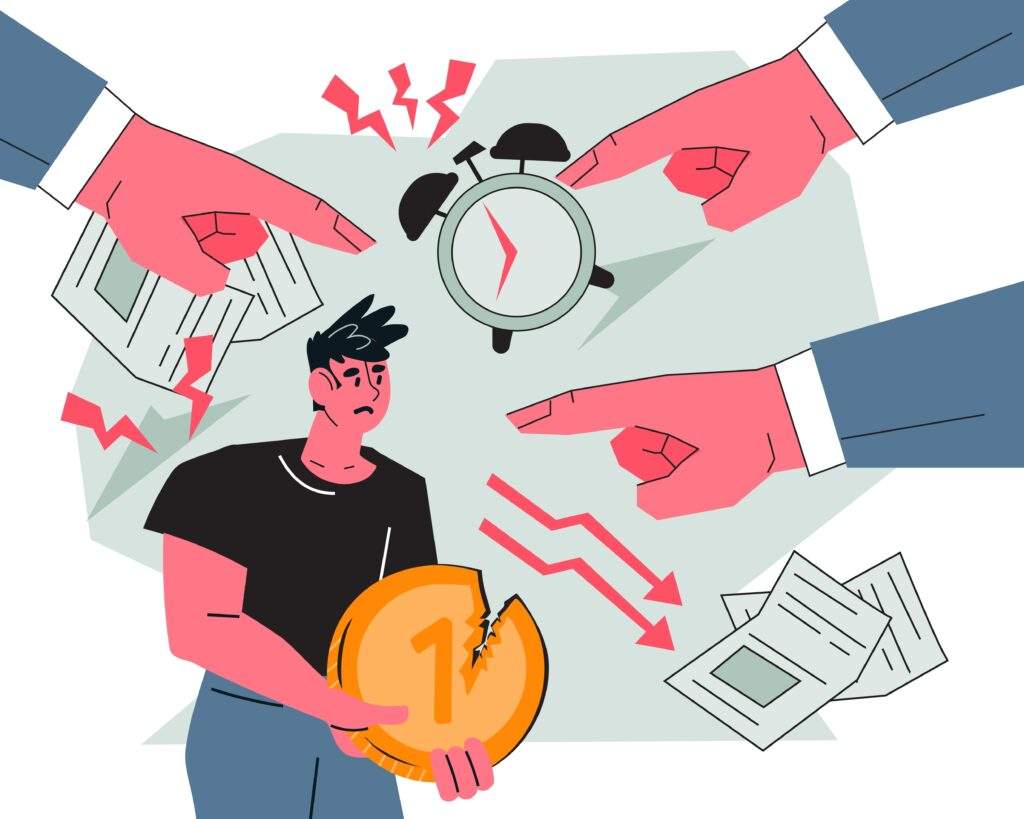In just a few short months you’re going to have a painful experience. You’re going to file your tax returns. And even if you’re current on what you owe and even in this relatively lower tax environment, you’ll probably look at the amount of taxes due from 2019 and go…wow!
When you add up your federal, state, and local taxes (and let’s not forget the duties, fees, tariffs, tolls, surcharges and other amounts added to your cable, internet, airplane and hotel bills) you’re probably paying somewhere between 20 and 30 percent of your income to the government.
20 to 30 percent seems like a lot. And it is. But, hey…want to pay more? Sounds good! Let me give you some advice that will enable you to accomplish that in 2020.
For starters, make sure to keep lousy records.

Be disorganized. Throw away those annoying invoices. Don’t maintain files. Ignore today’s affordable tech that allows you to snap photos of receipts or easily record out of pocket expenses. Instead, just put your tax returns together based on memory. Or spend lots and lots of additional time hunting for that lost piece of paper. If you have an accountant, make sure to make her job as difficult as possible by turning her into a private investigator on an endless search for your supporting documentation. You don’t mind spending the extra money to do that, do you? Or losing valuable deductions either? I thought not.
Next, make sure to do your taxes yourself.
Why not? Taxes are so easy, right? I understand you own a restaurant or you run a parts distribution business. But you also know everything there is to know about taxes like an experienced accountant or attorney too, I’m sure. It’s not complicated. And I’m sure you’re completely happy to rely on the tax software provided by companies that don’t know your business very well and use the information that you…YOU…are entering to figure out what you owe. You’re completely prepared to file all the returns and paperwork necessary and I’m sure you’re confident that the makers of your tax software product will happily respond to any more requests for information from the IRS or immediately fly out to your hometown and stand beside you in the case of an audit. Great, you’re fine.
If you do have an accountant, make sure to keep her in the dark.

Hopefully, you’ve realized by now to employ a Certified Public Accountant – or any good accounting professional well versed in taxation – to either do your taxes or review the work you’ve done before you file. But remember, we’re trying to pay more taxes this year. That’s the goal. So to achieve that goal, make sure to have zero communications with your tax expert throughout the year. Don’t meet with her. Don’t call her. Don’t keep her apprised of any changes in your business or personal life. Whatever you do, don’t give her easy portal access to your books. Most of the tax professionals I know are also clairvoyant, so it shouldn’t be a problem for them to read your mind or capture your data through cosmic osmosis to properly do your returns and calculate what you owe. Just keep them in the dark. They’ll figure it out.
Also, please…stay as uneducated as possible.
I get it – who the heck wants to learn even the most basic information about an expense that takes almost a third of your income away? Boring! And who has the time to read all of the countless, user-friendly, easy-to-understand websites, “Dummies” books and other publications that at the very least provide a basic education of the deductions, credits and other tax benefits that are available to you, both individually and as a small business owner? Sure, you know that if you spent one-tenth of the time reading up on tax stuff that affects you as you do reading about new ways to get leads for your business you might, in the end, contribute more to your profits through the savings realized. But that’s not that fun, is it?
Finally, if you owe money then delay paying as long as possible.

Your accountant may give you quarterly estimates to make during the year. Do you pay them on time? Oh, please…just don’t. Sit on them. Let the liability build up so that at some point you have to make a giant payment that cripples your cash flow. Keep the money on hand for as long as possible. That way you can contribute even more to the government through interest and penalties. It’s a simple way for you to pay more and that’s what it’s all about, right?
See? It’s easy to pay more to the government than you really owe. And why not? The government does so many great things that we might as well pay in as much as possible. That sounds like a much better use of our funds than investing in our businesses, saving for retirement or paying for our kids’ education, right?

